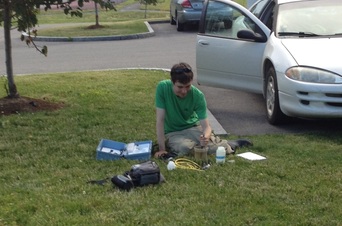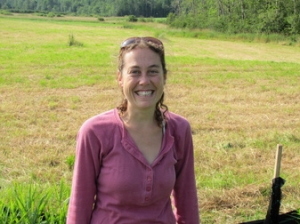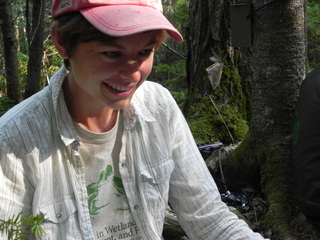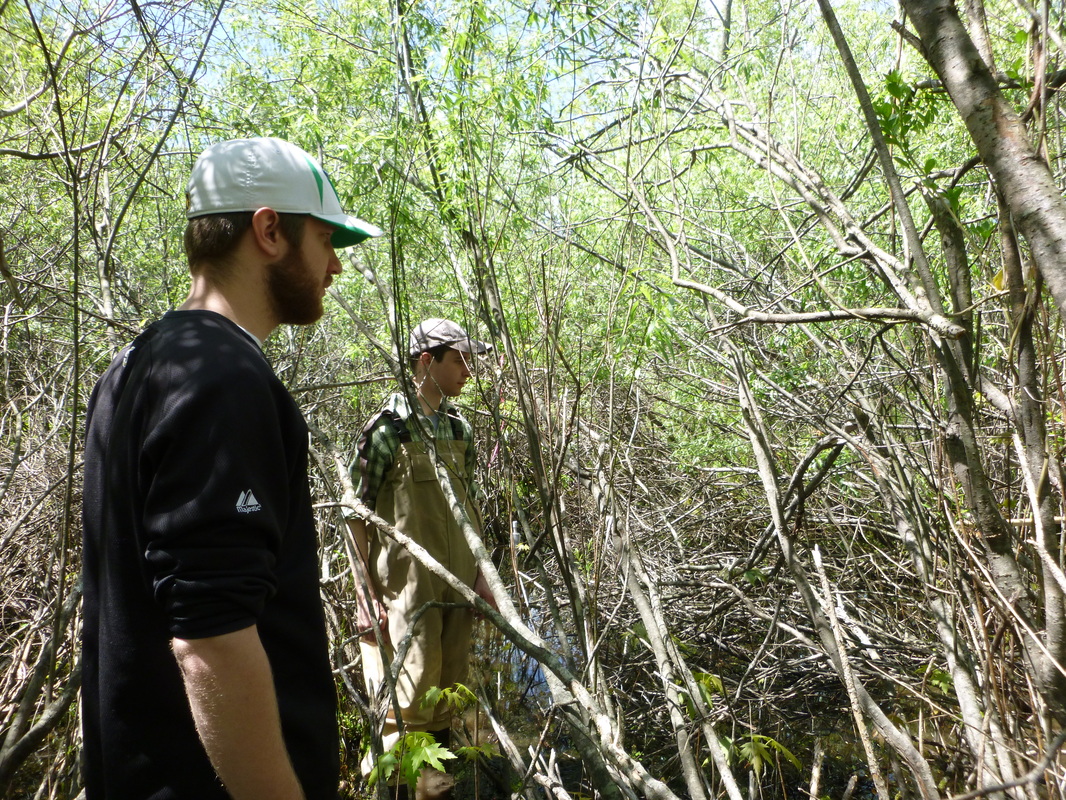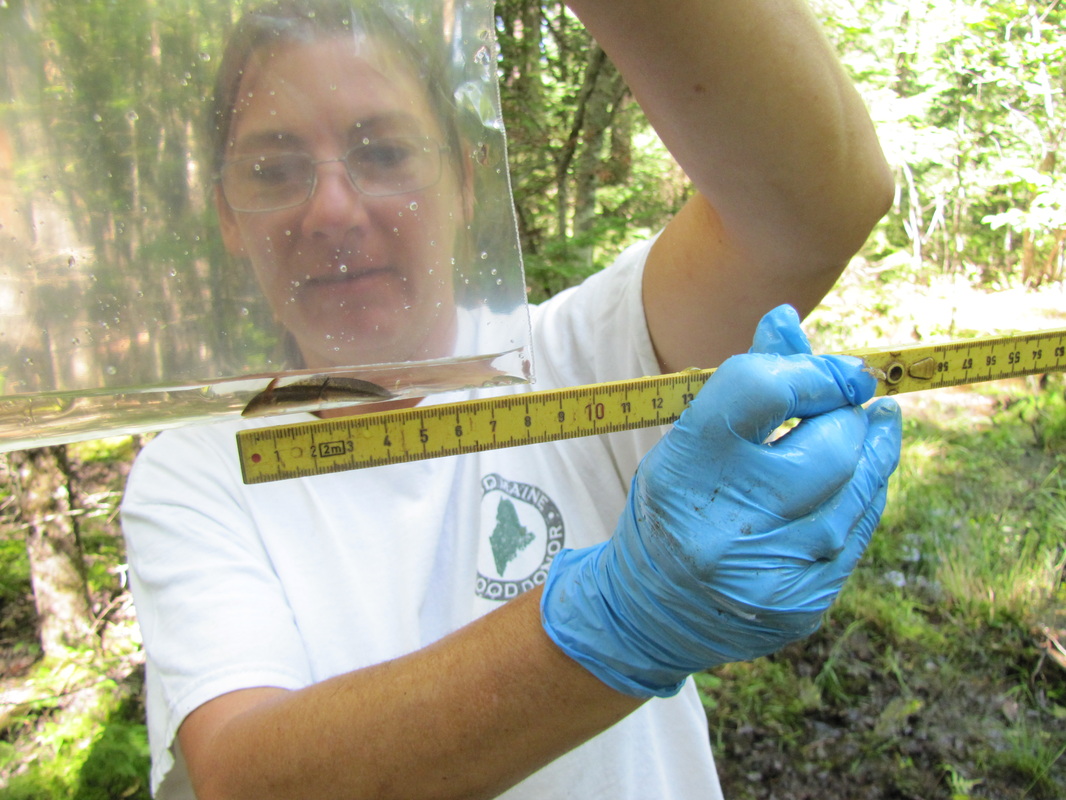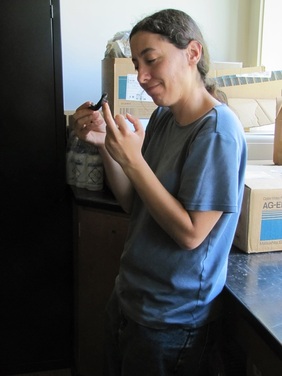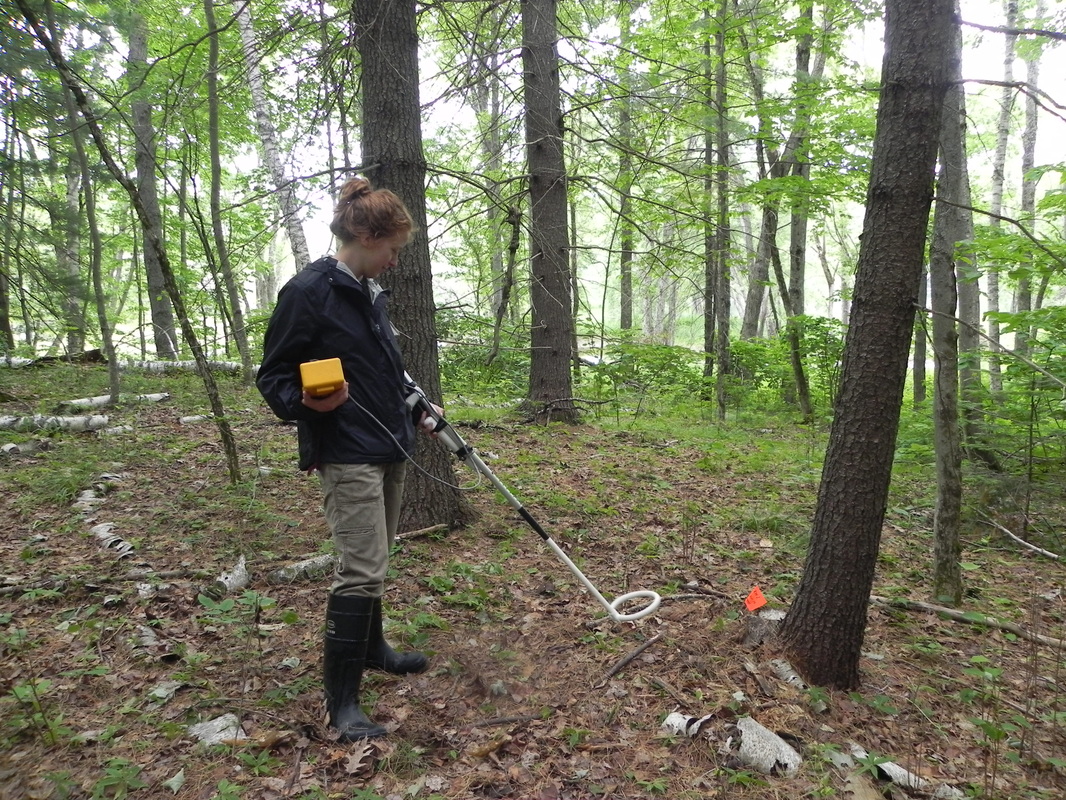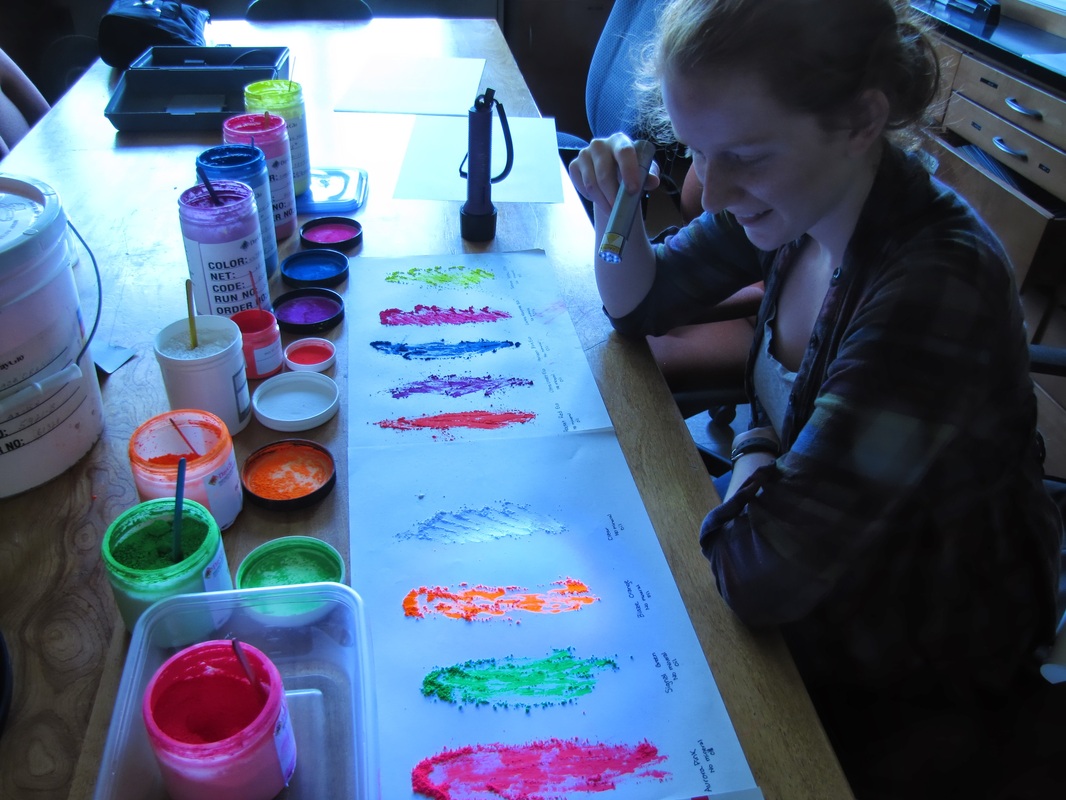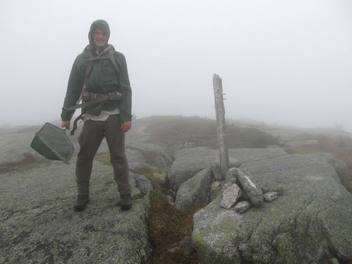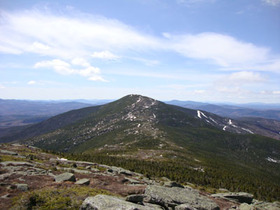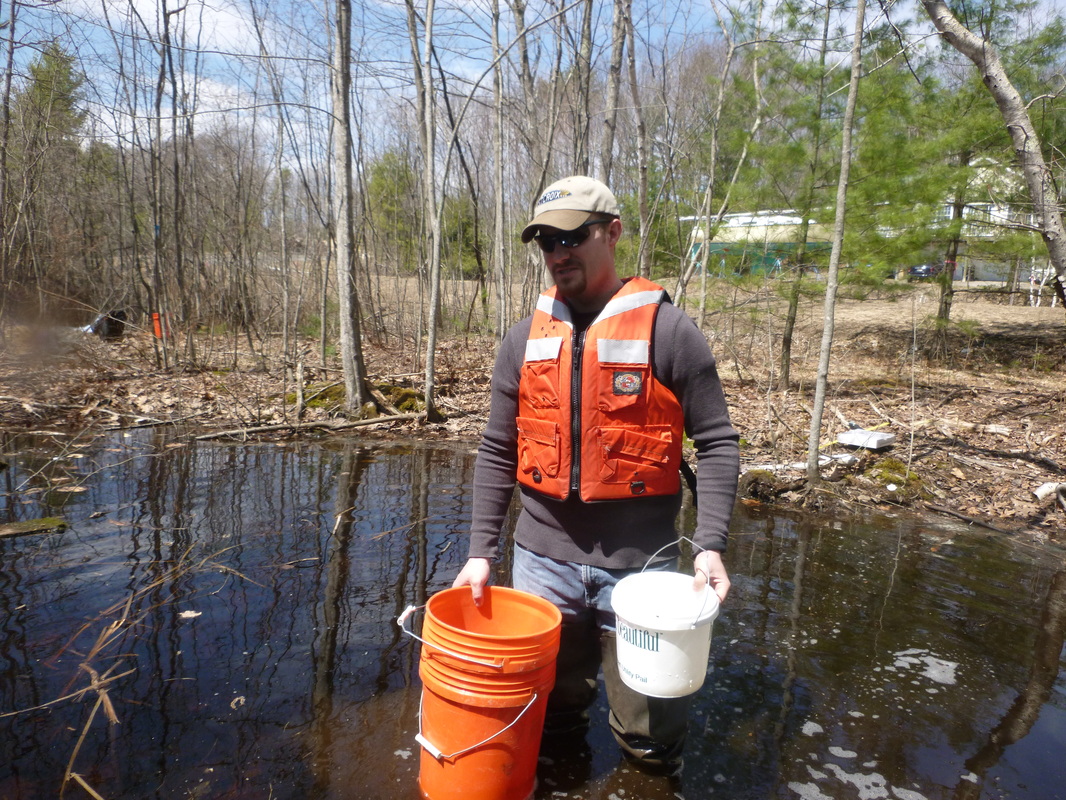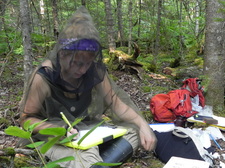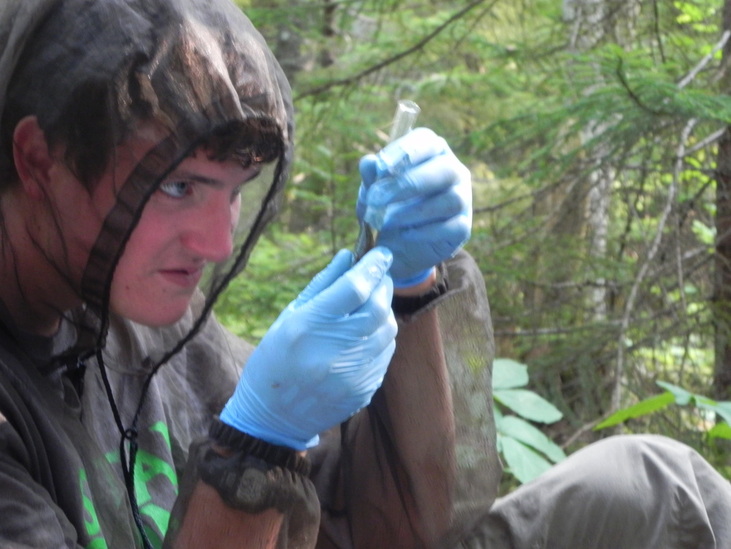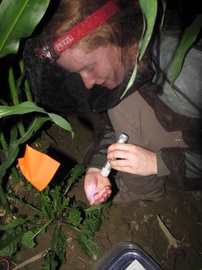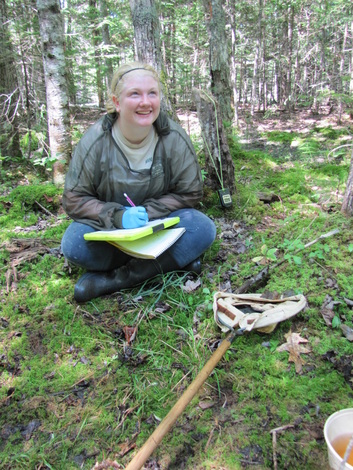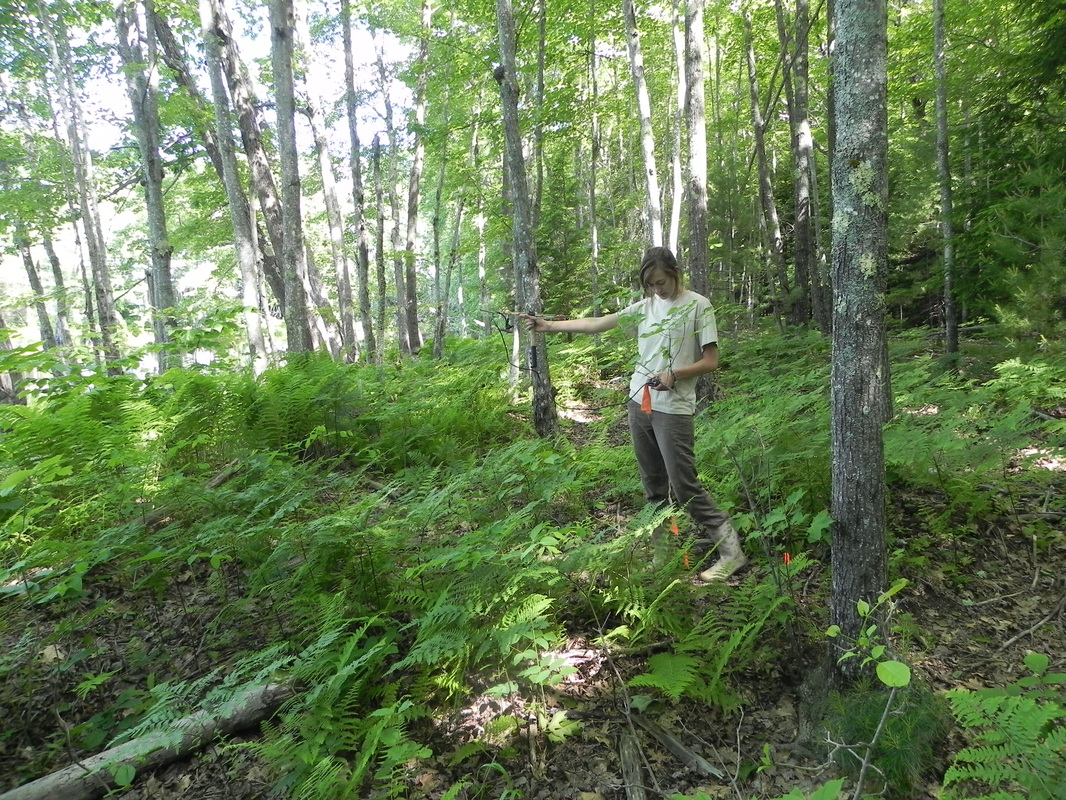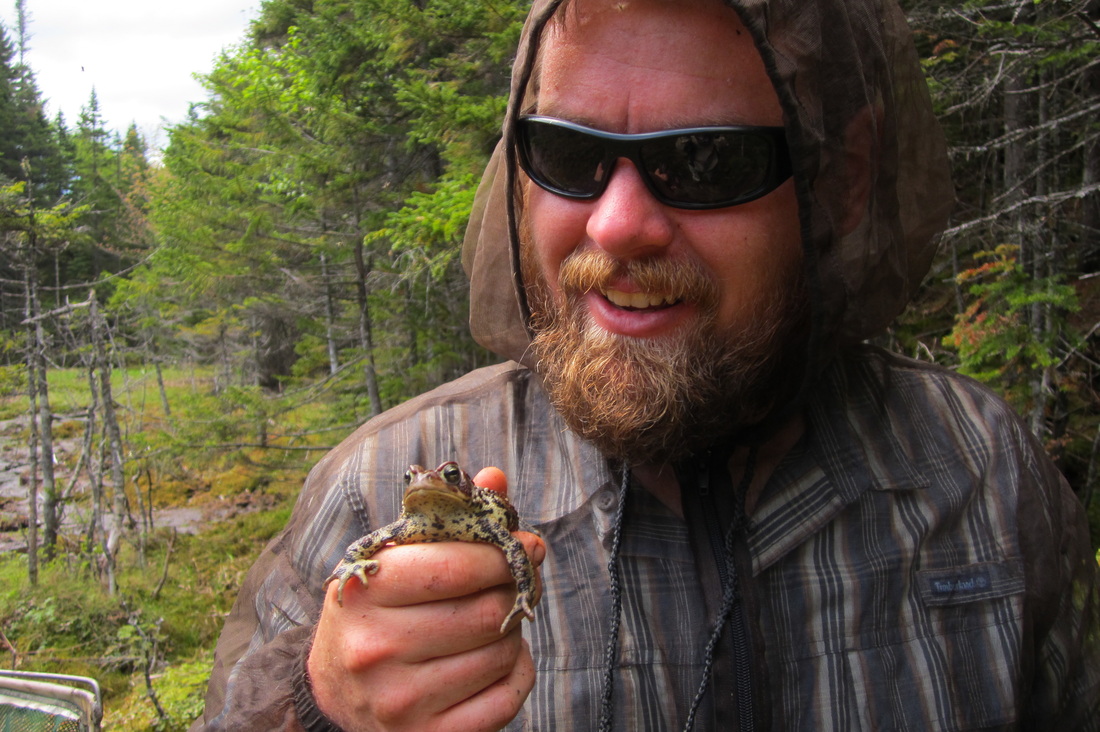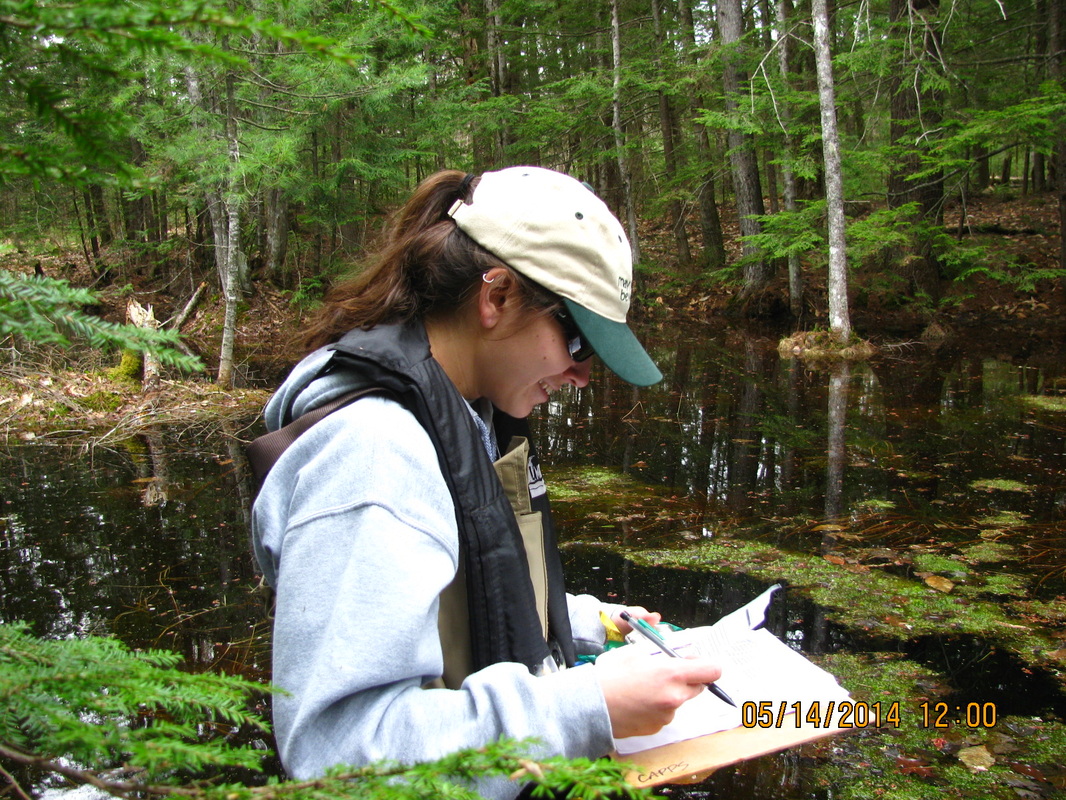Conor Gearin, Undergraduate Research Assistant, University of Maine-Orono
Undergraduates and high school students have gotten the chance to give field ecology a try this summer with the University of Maine-Orono vernal pools team. Working in a field ecology position for just the first or second time, the students have found their experiences of tracking salamanders, taking water samples, netting aquatic invertebrates and spending time with like-minded students and faculty well worth a few bug bites.
According to the students, an atmosphere of cooperation and having fun with field biology is an important feature of the vernal pools team.
“The people are really, really nice here,” said Bangor High School sophomore Steven Soctomah-Holmes. He recalled how excited faculty members get about seeing and identifying invertebrates in the water.
Since there are not many one-person jobs in the field, ecologists need to rely on each other and communicate well.
“You make a lot of friends doing field work,” said U. Maine-Orono (UMaine) junior Thomas Hastings. “It’s kind of like a close-knit family, in my mind,” he said.
“(PhD. student) Carly (Eakin) is great about explaining everything and making sure I know what to do,” said University of Maine junior Diane Dunham.
“I could not ask for a more dedicated, knowledgeable and enthusiastic group of people to work with,” said UMaine junior Abbey Feuka. “I look forward to going to work every day because I know everyone wants to be there and is genuinely invested in this research.”
Adam Scheppard (UMaine senior) said that the faculty and graduate students are “all eager to teach you and are hoping you’re having fun at the same time.”
“When comparing it my previous experiences, I’m included in the decision making a lot more here,” he said. “They ask you for your input a lot more.”
While the fieldwork needed to gather ecology data is not always easy, the students found it rewarding.
“I’ve enjoyed all of it,” said Diane, who had her first experience of wearing waders this summer. “It’s the first time in my life I’ve been able to say that I love my job.”
PhD. candidate Kris Hoffmann’s team tracks salamanders’ movements using radio telemetry.
“I once spent two hours tracking one of our salamanders by myself through the forest,” said Abbey. “When I finally found it, I felt such a strong sense of accomplishment and satisfaction because I realized how much I was willing to endure to answer an ecological question.”
The vernal pool team uses many approaches to figure out what is going on with the amphibians and environmental processes of vernal pools, and students have gained valuable experience in a wide variety of sampling techniques.
Thomas helped Dr. Britt Cline track juvenile wood frog’s habitat choices. By dusting the frogs with a fluorescent powder and releasing them in different habitat islands, they were able to see how willing the frogs were to move from different substrates.
Tom also backpacked with PhD. candidate Luke Groff into the mountains of western Maine to study remote vernal pools which few people get to see.
Diane said that the wildlife cameras which photograph animals visiting the vernal pools have allowed her to see how many different species make use of vernal pools besides amphibians.
In addition to field work, U. Maine-Orono junior Tess Howard also got to work in the lab with PhD student Jared Homola on extracting DNA from wood frog and spotted salamander eggs she sampled from the pools.
While she spent most of her time doing dip net surveys for aquatic invertebrates, Unity College junior Samantha McGarrigle also got to learn how to identify the species of Maine tadpoles.
There are some challenges involved in working in Maine’s forests, in both suburban and rural settings. Most students spoke of mosquitoes as their biggest annoyance.
“Literally, I think the bugs are the only thing I could complain about,” said Thomas. He explained that in suburban sites, mosquitoes are abundant, while blackflies are the most common pest up in the mountains.
Students found that humor is the best way to deal with mishaps in the field. When her boots topped over with water during her first week, Samantha McGarrigle said that the potentially frustrating moment became a chance for a laugh with her coworkers.
“It’s always nice when you can joke around in the field,” she said.
“One day I came face to face with a barred owl,” said U. Maine-Orono junior Samantha Hutchinson. “Even though I think it was trying to attack me, it was pretty cool.”
For this summer’s students, the chance to work under the sun among Maine’s wildlife and gain research experience outweighed the challenges.
“I think it’s pretty interesting to learn about and to see all the different bugs and learn about all the different leaves,” said Steven.
“What’s really going to stick with me is how intricate vernal pools are,” said Adam. He said that the many kinds of data he has taken at the pools have heightened his appreciation for them as important habitats.
Diane said that the summer has given her a better idea of the kind of work ecology graduate students do.
While not all of them are planning on a career in ecology, all of the students interviewed said this summer has made them more inclined towards doing fieldwork in the future.
“Everyone should try fieldwork at least once!” said Tess. “It may not be for everybody … but being outside and learning about these organisms was one of the coolest things I could’ve done.”
Abbey said that this summer has reaffirmed her passion for ecology.
“This job has made me realize how I work best outdoors and on my feet,” she said. “When I come home sweaty, muddy, and covered in insect bites and still get excited to go into work tomorrow, I know I’m in the right field of work.”

